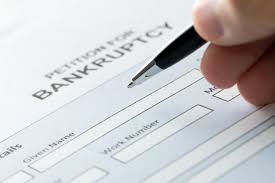Filing bankruptcy is a big decision to consider. Before rushing into the legal end of filing, you should equip yourself with the proper knowledge to navigate the shady path to financial freedom. 
The financial system has worked in a few specific ways to wipe your slate clean, and most people don’t fully understand their options. Take a moment now to check out some of the most important aspects surrounding bankruptcy that we all should know.
The two main types of bankruptcy
There are several different ways to file for bankruptcy, but only two of them really apply to most individuals. Chapter 7 and Chapter 13 bankruptcy are the two most common forms of bankruptcy filed by Americans.
Chapter 7: If you don’t own your home, and medical bills are your main financial fault, Chapter 7 may be your best course of action. Filing Chapter 7 bankruptcy will change the way you file your taxes as well.
Chapter 13: If you do own your home, Chapter 13 may better serve your needs.
How bankruptcy will affect your credit
If you’re considering bankruptcy, your credit probably isn’t in the best shape. Though bankruptcy does show as a negative blemish on your credit report, it will clear up several other bad marks.
You may want to do further research into how bankruptcy will personally affect your financial standings. Generally speaking, bankruptcy will remain on your credit for ten years, but the older the stain, the less intimidating it is to lenders.
Some debts cannot be discharged
As much as you probably want to see bankruptcy as a “get out of jail free” card, it isn’t. Most people don’t come through bankruptcy unscathed. You may lose some of your personal property, and there are some debts that simply won’t be affected by the judgement.
A few examples of debts that are not wiped clean by filing bankruptcy are:
- Student loans
- Child support
- Alimony
- Back taxes
It costs money to file bankruptcy
Filing bankruptcy is generally not a very inexpensive venture. It takes money to say you don’t have any money legally. Filing Chapter 7 can run you anywhere from $1,500 to $2.500, and Chapter 13 costs closer to $3,000-$4,000.
Filing Chapter 13 bankruptcy allows individuals to include the cost of filing in their payback plan. Chapter 7 does not offer that option.
Invest in credit counseling
Before you can legally file bankruptcy, the government requires individuals to complete a counseling course in credit/financial management. Obtaining the completion document shows initiative in correcting the spending habits that got you here in the first place. Take the information to heart, and try to learn something.
